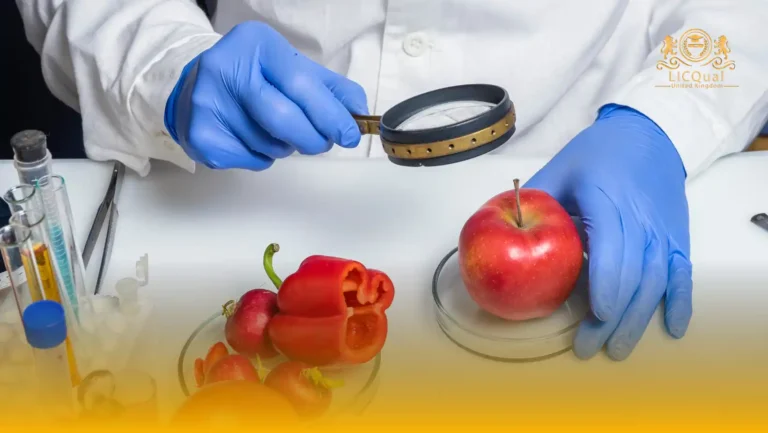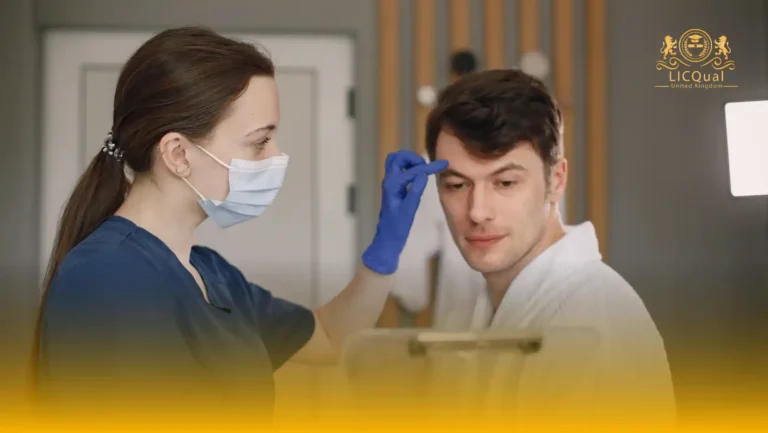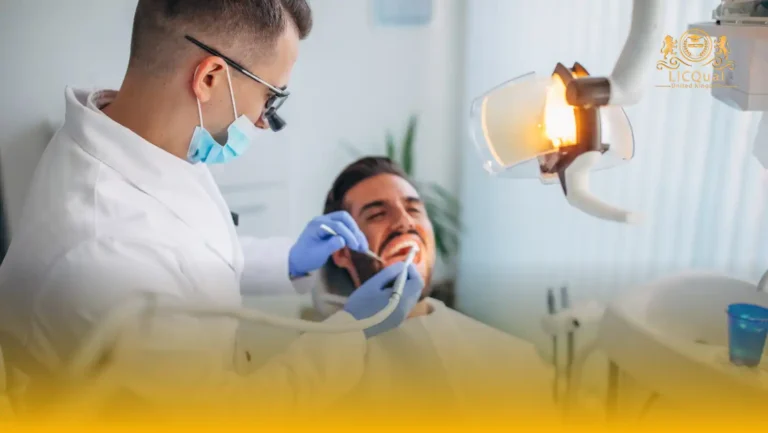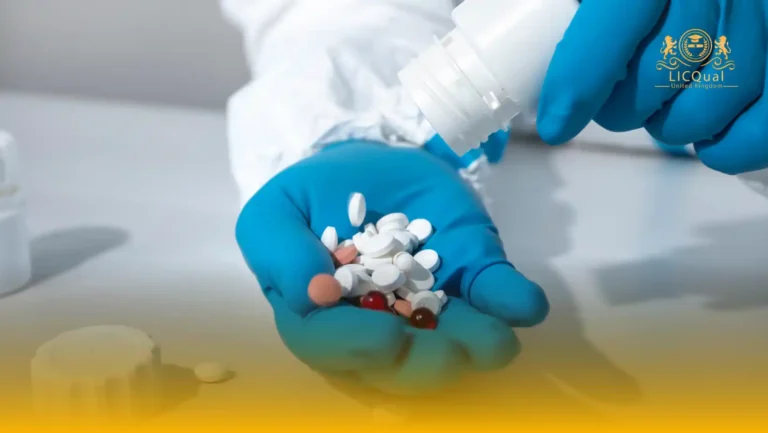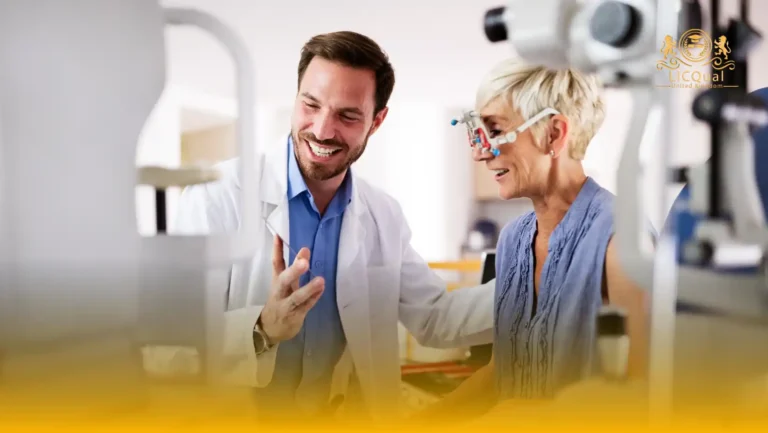The LICQual Level 7 Postgraduate Diploma in Reproductive Endocrinology and Infertility (PgDREI) is an advanced qualification designed for professionals who wish to deepen their expertise in the diagnosis, treatment, and management of reproductive health and infertility. The LICQual Level 7 Postgraduate Diploma in Reproductive Endocrinology and Infertility (PgDREI) is not intended for beginners but is tailored for experienced practitioners who aim to expand their professional knowledge, strengthen their clinical practice, and advance their Continuing Professional Development (CPD). By focusing on the latest research and evidence-based practices, the diploma equips learners with the specialist skills required to meet the growing demand for fertility and reproductive healthcare services worldwide.
The LICQual Level 7 Postgraduate Diploma in Reproductive Endocrinology and Infertility (PgDREI) provides an in-depth understanding of reproductive endocrinology, infertility diagnostics, assisted reproductive technologies (ART), and advanced treatment options. Learners will also explore the ethical, legal, and professional considerations that underpin safe and effective fertility practice. By completing this qualification LICQual Level 7 Postgraduate Diploma in Reproductive Endocrinology and Infertility (PgDREI), learners gain the competence to deliver high-quality patient care, contribute to clinical research, and progress into senior roles within reproductive medicine and healthcare.
Centres delivering this qualification must demonstrate a strong commitment to educational excellence. They are required to ensure that all staff members involved in teaching and assessment are highly qualified, experienced, and competent in reproductive medicine. In addition, centres must provide learners with access to modern facilities, clinical resources, and learning materials to create a rigorous and supportive training environment.
The LICQual Level 7 Postgraduate Diploma in Reproductive Endocrinology and Infertility (PgDREI) empowers learners to enhance their careers, achieve professional recognition, and contribute to advancements in reproductive healthcare and infertility management on a global scale.
Course Overview
Qualification Title
LICQual Level 7 Postgraduate Diploma in Reproductive Endocrinology and Infertility (PgDREI)
Total Units
6
Total Credits
120
GLH
600
Qualification #
LICQ2200994
Qualification Specification
To enroll in the LICQual Level 7 Postgraduate Diploma in Reproductive Endocrinology and Infertility (PgDREI), applicants must meet the following criteria:
|
Qualification# |
Unit Title |
Credits |
GLH |
|---|---|---|---|
|
LICQ2200994-1 |
Advanced Reproductive Endocrinology and Physiology |
20 |
100 |
|
LICQ2200994-2 |
Diagnostic Approaches in Infertility and Reproductive Disorders |
20 |
100 |
|
LICQ2200994-3 |
Assisted Reproductive Technologies (ART) and Clinical Applications |
20 |
100 |
|
LICQ2200994-4 |
Management of Male and Female Infertility |
20 |
100 |
|
LICQ2200994-5 |
Ethical, Legal, and Professional Issues in Reproductive Medicine |
20 |
100 |
|
LICQ2200994-6 |
Research Methods and Evidence-Based Practice in Reproductive Endocrinology |
20 |
100 |
By the end of this course, learners will be able to:
Unit 1: Advanced Reproductive Endocrinology and Physiology
- Analyse the hormonal regulation of the reproductive system in both male and female physiology.
- Critically evaluate endocrine pathways and their impact on fertility.
- Apply advanced knowledge of reproductive endocrinology to clinical practice.
- Assess the influence of age, genetics, and environment on reproductive health.
Unit 2: Diagnostic Approaches in Infertility and Reproductive Disorders
- Identify and evaluate diagnostic methods for infertility in men and women.
- Interpret laboratory and imaging results for reproductive disorders.
- Apply evidence-based diagnostic protocols to clinical cases.
- Assess the role of genetic and molecular testing in infertility management.
Unit 3: Assisted Reproductive Technologies (ART) and Clinical Applications
- Examine the principles and practices of IVF, ICSI, and related ART procedures.
- Critically analyse laboratory techniques supporting assisted reproduction.
- Evaluate clinical outcomes and success rates in ART.
- Apply ethical and professional guidelines in the use of ART.
Unit 4: Management of Male and Female Infertility
- Assess treatment strategies for male infertility, including medical and surgical interventions.
- Evaluate female infertility management options, including ovulation induction and ART.
- Develop evidence-based treatment plans tailored to patient needs.
- Critically analyse lifestyle, psychological, and social factors affecting infertility treatment.
Unit 5: Ethical, Legal, and Professional Issues in Reproductive Medicine
- Analyse ethical dilemmas in reproductive endocrinology and infertility practice.
- Evaluate legal frameworks governing reproductive medicine and ART.
- Apply professional standards and codes of practice in clinical decision-making.
- Demonstrate reflective practice in dealing with sensitive patient issues.
Unit 6: Research Methods and Evidence-Based Practice in Reproductive Endocrinology
- Design and implement research projects relevant to reproductive medicine.
- Critically evaluate clinical research and scientific literature.
- Apply evidence-based practice to enhance clinical decision-making.
- Demonstrate advanced skills in data analysis, interpretation, and presentation.
The LICQual Level 7 Postgraduate Diploma in Reproductive Endocrinology and Infertility (PgDREI) is designed for healthcare professionals, gynecologists, fertility specialists, and clinicians aiming to enhance their expertise in reproductive medicine. This Level 7 qualification is ideal for those seeking internationally recognized credentials, advanced knowledge in fertility treatments, and practical skills to manage complex reproductive health conditions. Whether you work in hospitals, fertility clinics, private practice, or research settings, this diploma equips you with the knowledge and credibility to excel in reproductive endocrinology and infertility care.
Doctors and Gynecologists
- Designed for physicians specializing in reproductive health and fertility.
- Enhances knowledge of hormonal regulation and reproductive endocrinology.
- Builds skills in managing infertility and complex reproductive cases.
- Improves understanding of assisted reproductive technologies (ART).
- Supports career advancement with an internationally recognized qualification.
Fertility Specialists and Reproductive Endocrinologists
- Ideal for specialists working in fertility clinics or reproductive centers.
- Develops expertise in IVF, ovulation induction, and embryo transfer.
- Strengthens knowledge of fertility preservation strategies.
- Encourages evidence-based, patient-centered clinical practice.
- Supports leadership roles in advanced reproductive medicine.
Nurses and Allied Health Professionals
- Tailored for nurses, embryologists, and allied health professionals.
- Enhances patient assessment and monitoring in reproductive treatments.
- Builds confidence in supporting fertility procedures and counseling.
- Develops understanding of ethical, legal, and professional standards.
- Supports continuing professional development (CPD) and clinical competency.
Medical Students and Postgraduate Trainees
- Suitable for graduates pursuing specialization in reproductive medicine.
- Provides a strong foundation in reproductive endocrinology and fertility therapies.
- Enhances clinical reasoning, research, and analytical skills.
- Prepares learners for postgraduate training or specialized clinical practice.
- Offers internationally recognized certification to boost professional credentials.
Healthcare Managers and Clinic Administrators
- Designed for managers overseeing fertility and reproductive health services.
- Improves knowledge of operational planning and patient care protocols.
- Strengthens leadership in implementing ART and fertility programs.
- Promotes quality assurance and regulatory compliance in reproductive clinics.
- Supports strategic management of fertility and reproductive services.
International Healthcare Professionals
- Perfect for global learners seeking UK-recognized training in reproductive medicine.
- Offers flexible online learning to balance work and study commitments.
- Equips learners with skills for clinical and laboratory reproductive care worldwide.
- Builds credibility and recognition in international fertility and reproductive health markets.
- Supports career growth and global professional opportunities.
Private Clinic and Laboratory Practitioners
- Designed for clinicians and scientists running private fertility clinics or labs.
- Enhances patient consultation and advanced treatment planning expertise.
- Builds advanced skills in ART, IVF, and fertility preservation techniques.
- Encourages application of best practices in private clinical and laboratory settings.
- Supports professional credibility and business growth in reproductive medicine.
Centres delivering the LICQual Level 7 Postgraduate Diploma in Reproductive Endocrinology and Infertility (PgDREI) must ensure the highest standards of academic delivery and learner support. Requirements include:
- Qualified and experienced faculty with expertise in reproductive endocrinology, infertility, and assisted reproductive technologies.
- Access to suitable learning resources, including up-to-date textbooks, journals, case studies, and online databases.
- Practical training facilities or partnerships with approved clinical centres where appropriate.
- Robust assessment systems to evaluate both theoretical understanding and applied clinical knowledge.
- Commitment to learner support services, including academic guidance and professional mentoring.
- Quality assurance procedures to maintain compliance with international educational standards.
Assessment and Verification
All units within this qualification are subject to internal assessment by the approved centre and external verification by LICQual. The qualification follows a criterion-referenced assessment approach, ensuring that learners meet all specified learning outcomes.
To achieve a ‘Pass’ in any unit, learners must provide valid, sufficient, and authentic evidence demonstrating their attainment of all learning outcomes and compliance with the prescribed assessment criteria. The Assessor is responsible for evaluating the evidence and determining whether the learner has successfully met the required standards.
Assessors must maintain a clear and comprehensive audit trail, documenting the basis for their assessment decisions to ensure transparency, consistency, and compliance with quality assurance requirements.


